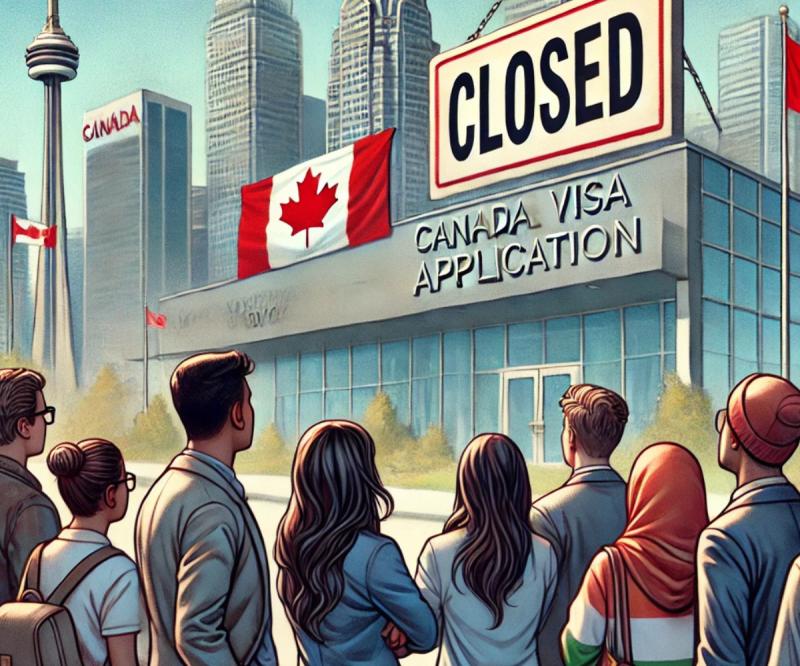
- agastya9
- 11 Nov 2024 09:44 PM
- CanadaVisaNews, IndianStudents, CanadaStudyPermit
In a move likely to affect thousands of Indian students, Canada has discontinued its popular fast-track study visa program amid ongoing diplomatic tensions with India. The decision marks a significant change for international students, particularly those from India, who have relied on the streamlined Student Direct Stream (SDS) for faster visa processing and higher approval rates.
End of Fast-Track Visa Processing
The Student Direct Stream (SDS) program, launched in 2018, allowed students from select countries—including India—to benefit from expedited visa processing, often reducing wait times to around 20 business days. With the program's termination on November 10, students will now need to apply through the standard study permit route, where processing could extend to eight weeks or more.
The SDS, initially implemented to simplify and accelerate student permit processing, was also open to residents from countries like China, the Philippines, and several Latin American and African nations. However, Canada's Immigration, Refugees and Citizenship Canada (IRCC) emphasized in a statement that they aim to create a fair and equal process for all international students, ensuring program integrity and safeguarding student welfare.
Impact on Indian Students
The program’s end comes as Canada rethinks its immigration policies, including significant cuts to international student permits. With approximately 427,000 Indian students currently in Canada, this shift could heavily impact the Indian student population, who account for the largest group of international students in the country.
Prime Minister Justin Trudeau previously noted on social media that Canada would be reducing international student permits by 35 percent this year, with a further 10 percent reduction planned for next year. Trudeau cited the need to crack down on individuals abusing the system and exploiting students as part of the rationale behind these reductions.
Diplomatic Context and Policy Changes
The termination of the SDS program coincides with ongoing diplomatic tensions between Canada and India, adding to the complexities of this policy shift. In addition to the SDS, the Nigeria Student Express (NSE) program, which offered a similar streamlined application process for Nigerian students, has also been discontinued.
Under new guidelines, eligible SDS and NSE applications submitted before the November 10 deadline will still be processed under these streams. However, all new applicants will be directed through the regular study permit process. The IRCC confirmed that Guaranteed Investment Certificates would still be accepted as proof of financial support.
Future of Canadian Immigration Policies
In October, Immigration Minister Marc Miller outlined Canada’s new immigration strategy, including plans to admit approximately 395,000 permanent residents in 2025, down from 485,000 this year. Temporary immigration numbers are also set to decrease, with non-permanent resident targets projected to reach around 17,400 by 2027, a significant drop from the estimated 800,000 this year.
Canada’s new policies signal a shift from the previously open approach to immigration, impacting both students and low-skilled workers. The IRCC’s changes seek to enhance program transparency and ensure that genuine students and workers benefit from the process, but they also pose challenges for prospective students from India and other affected countries.






































